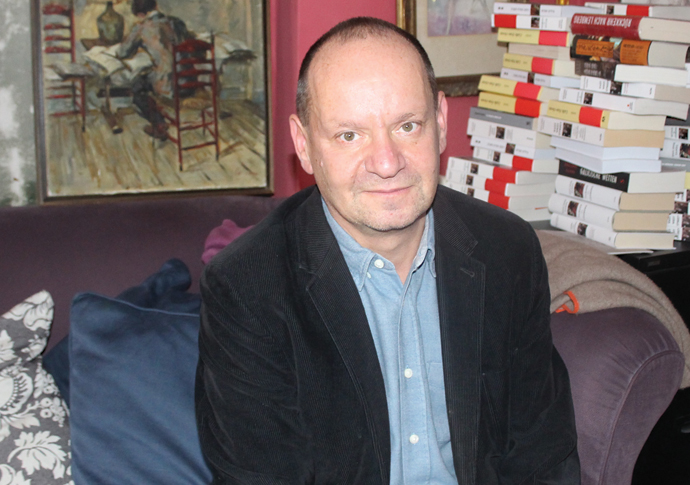Universal rights and wrongs
In his latest book, lawyer Philippe Sands exposes Britain’s hypocrisy in its treatment of the Chagos islanders
Thursday, 6th October 2022 — By Dan Carrier

Philippe Sands
IN the early 1970s, the US and Britain built a military base on the small Indian Ocean island of Diego Garcia, part of the Chagos archipelago in the Indian Ocean. Its inhabitants had been marched off, along with others on neighbouring islands.
The base would become a considerable military asset during the Cold War, with more than half a billion dollars spent in the following decade.
Fifty years on, the people forcibly removed from their islands are still waiting to return.
The story behind the case of the Chagos islanders and the blatant hypocrisy of Britain and the US as promoters of democracy and international law is told in a new book by barrister Professor Philippe Sands.
Sands has been representing the Mauritius government – the Chagos were once their territory – and the former inhabitants of an island called Peros Banhos as they seek to return home. He has written widely on the effects of the global legal system on the individual and the nation state, and now he recounts a festering issue that undermines every foreign policy pronouncement the UK makes.
The Hampstead-based lawyer became involved in 2010 when the then foreign secretary David Miliband revealed a new Marine Protected Area – covering a huge swathe of the Indian Ocean and taking in Chagos. Sands believed it was perhaps a way to distract from the fact the islands have been used to perpetuate the war in Iraq and had become a stopping point for the illegal, forced rendition of suspects in the War on Terror.
The announcement rang alarm bells in the government of Mauritius and they enlisted Sands help to challenge the lawfulness of this plan.
His book lays out the background to how Britain and the US ignored their own proclamations about the right to self-determination, their dishonest approach to end of colonialism, and the universality of human rights.
At the heart of the argument is the post-war United Nations charter, which laid out the case for self-determination.
Liberation movements were shaking off chains, and the idea of the British fighting Nazi Germany on a platform of supporting everyone’s rights were undermined by the approach to empire.
In the years that followed, developments in Chile, Nicaragua, Iraq and Afghanistan, among others, expose how the charge of hypocrisy can be easily levelled against the US and the UK.
Sands uses the story of one Chagossian, Liseby Elyse, to lay out an unimpeachable moral case. He shows how the actions of the British government are indefensible in international law – and continue to show a worryingly selective approach to cross-border agreements and the rule of law.
In the mid-70s, Chagossian Michel Vencatassen sued for “intimidation and deprivation of liberty”. The government settled the case, creating a trust fund of £4m. To obtain a sliver of cash, Chagossians were required to sign a contract forcing them to give up any further claims. But this was not the end of the issue. The contract was signed by many without knowing what it meant.
The document was issued as the British were sending a military force to wage war to the Falkland Islands.
At the time, as Sands points out, the argument used by the British was the right to self-determination under the UN charter. “The difference of approach to the two populations – one white, the other black – was not widely recognised,” he writes.
“Thirty years later, in May 2015, the British government would even publish a paper titled Falkland Islanders’ right to self-determination. It did so with a straight face, as it opposed the right of Mauritius to self-determination in relation to Chagos.”
In 1998, another high court ruling found in favour of the Chagossians. The foreign secretary, Robin Cook, announced the Chagossians would be able to return to their homes.
After 25 years, Elyse could start to believe that she may one day return. A second case, asking for compensation and the return of property rights, was also filed. But then disaster struck. In 2004, as the war in Iraq took hold, the islands were considered to have a fresh importance, and despite repeated rulings against the UK, the Chagossians are still not home.
This walk through international law reveals the crimes of the colonial past, and how justice and rights must be applicable to all.
• Philippe Sands is presenting his new book at Daunts Books, South End Road, NW3, on Thursday October 12, 6.30pm.
• The Last Colony: A Tale of Exile, Justice and Britain’s Colonial Legacy. By Philippe Sands. Weidenfield and Nicolson, £16.99